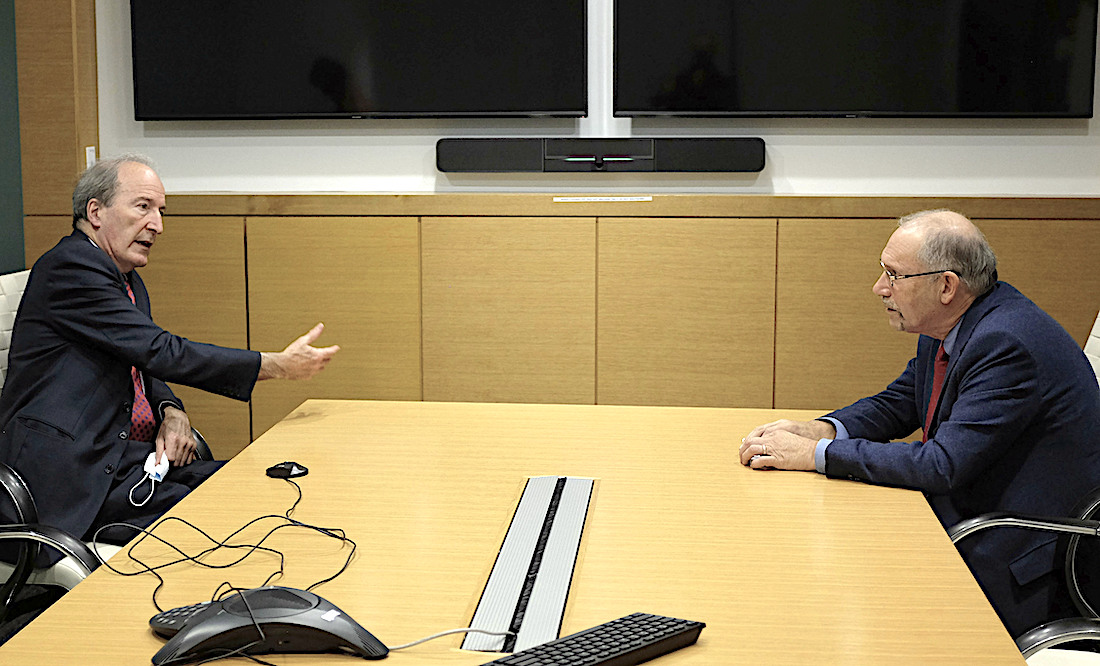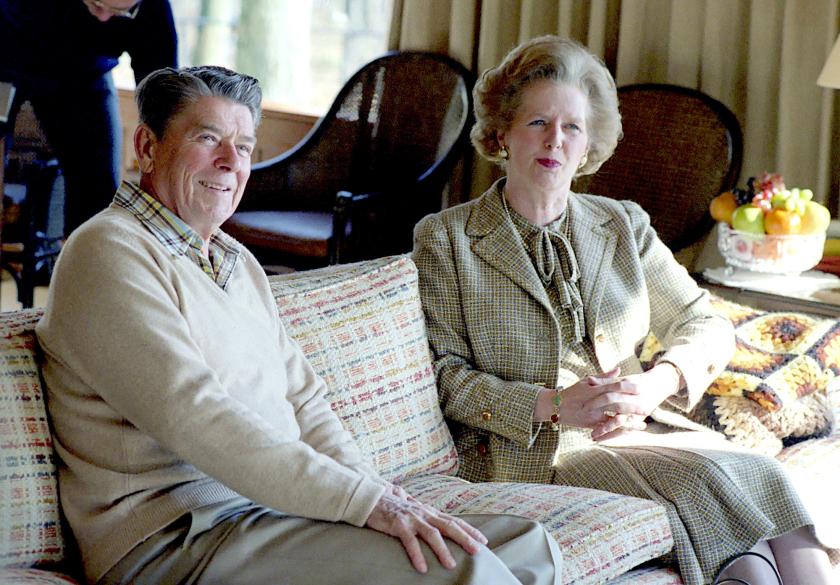This two-part documentary about how the Eighties were partly shaped by the British Prime Minister and the US President was obviously planned long before the Russians invaded Ukraine, but it’s a powerful illustration of how history doesn’t stop, but keeps coming around again in a slightly reformatted guise. It’s also a timely reminder of what “statesmanship” means, at a time when this elusive commodity has never been in shorter supply.
The story is told by Margaret Thatcher’s biographer and former Daily Telegraph editor Charles Moore, and bundling Moore, Thatcher and Ronald Reagan together probably exceeds the BBC’s entire annual quota of conservative-themed programming. Nonetheless, it makes absorbing and instructive viewing. Moore not only knew Thatcher well, but he’s tracked down a swarm of key players from Reagan’s Washington administration, who deliver some penetrating observations about the political climate of the time as well as the personal chemistry between the PM and the President.
Reagan’s speechwriter Peter Robinson advances the theory that Reagan’s movie star past, which brought him legions of female fans, as well as his closeness to his mother, had imbued him with a natural sympathy for women, and comments that Reagan was “his best when there’s a woman in the room.” Thatcher, meanwhile, was evidently charmed by his folksy, laid-back manner.
 This natural empathy dovetailed perfectly with their shared belief that the Soviet Union was an implacable enemy that had to be faced down (there’s a clip of Reagan telling his audience that “Russia will take us back to the dark ages”). Moore makes the point that they also believed that the Cold War was something they could win, rather than accepting the defeatist line common elsewhere that it was a prevailing, entrenched condition that would endure indefinitely.
This natural empathy dovetailed perfectly with their shared belief that the Soviet Union was an implacable enemy that had to be faced down (there’s a clip of Reagan telling his audience that “Russia will take us back to the dark ages”). Moore makes the point that they also believed that the Cold War was something they could win, rather than accepting the defeatist line common elsewhere that it was a prevailing, entrenched condition that would endure indefinitely.
It’s Thatcher who emerges as by far the stronger and more decisive character, characteristics which violently polarised public perceptions of her but were at the core of her political successes. When strength turned into bull-headed obstinacy, her days duly became numbered. Her defining moment was the Falklands war of 1982 – this was “when Mrs Thatcher lived most intensely,” says Moore to the camera – and under any other PM the war would probably not have been fought, let alone won by the British. There are some fascinating insights into how the Americans were doubtful that the Brits could carry off a campaign 8,000 miles away in the South Atlantic with comparatively meagre forces.
As she herself declared, the lady was not for turning, so efforts by US Secretary of State Alexander Haig to surreptitiously hand the Falklands’ sovereignty to Argentina merely spurred her on more furiously. Others in Washington were more sympathetic, like Dov Zakheim from the Department of Defense (Moore and Zakheim pictured above), whose British wife exhorted him to take action against "those bloody fascists". He reveals the crafty arrangement he set up whereby the British, who shared the Wideawake airfield on Ascension Island with the Americans, could help themselves to supplies from the American warehouses and then pay for whatever they took. This included the supply of Sidewinder air-to-air missiles which proved critical to the eventual British victory.
Britain’s so-called “special relationship” with the USA often seems like mere wishful thinking, but it patently did exist during the Eighties. It was strong enough even to withstand periodic spats between the two parties, as when Thatcher tore into Reagan over a proposed embargo of the Siberia-Europe pipeline (a premonition of the controversial Nord Stream 2, perhaps). “We must be pretty frank with our American friends,” she snapped. Reagan knew his place and backed down.















Add comment